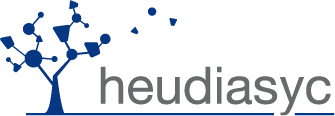Sidebar
en:start
Mohamed Sallak
Associate Professor / HDR at “Université de Technologie de Compiègne”
Department of Computer engineering
Laboratoire Heudiasyc UMR CNRS 7253
57 Avenue de Landshut
60200 Compiègne Cedex
France
Tel. : 33 (0)3 44 23 49 30 ; 33 (0)6 63 20 54 93
Fax : 33 (0)3 44 23 44 77
Email
mohamed.sallak@hds.utc.fr
Publications
More than 35 journal articles and 80 conference articles.
List of all publications pdf
Projects
List of all projects pdf
Detailed CV in French
Research areas
- Dependability assessment of systems under uncertainty: RAMS analysis (Reliability, Availability, Maintainability, Safety).
- Dependability of railway systems: Safety studies, railway standards (EN 50126, EN 50128, EN 50129), Risk analysis.
- Predictive maintenance
Projects
- Member of ANR PRCE DRIFT-HF project : « Digitalization – Risks, (U)ncertainties and Fragilities of Technologies in relation to the Human Factor», French National Research Agency (ANR), 2022-2026.
- Member of the national project : « Autonomous Freight Train (TFA) », 2018-2023 (Partners : UTC - IRT Railenium, SNCF, HITACHI RAIL STS, Apsys, Altran).
- Member of the national project : « Remote Driving on Rail (TC-Rail) », 2017-2021 (Partenaires : UTC - IRT Railenium, SNCF, Thales, Actia telecom, Cnes).
- Principal Investigator of ANR PRCE MAPSYD project : “Predictive Maintenance of transportation systems under incomplete and imprecise data”, French National Research Agency (ANR), 2018-2021
- Principal Investigator of the regional project (Région Hauts de France) ODISYM : “Optimization of Availability of multi-state systems under uncertainty”, 2016-2019.
- Member of the SURF project : “Security and safety in the factory of the future”, PEPS-CNRS, 2016.
- Principal Investigator of ANR JCJC (Young researcher program) Récif project : “Belief networks for quantitative evaluation of dependability parameters of railway systems”, French National Research Agency (ANR), 2013-2017.
- Member of the PERFECT project: “Performing Enhanced Rail Formal Engineering Constraints Traceability”, French National Research Agency (ANR), ANR-TDM, 2013-2016.
- Member of the VEGAS project : “Virtual lab based on co-simulation to include impairments of wireless telecommunication such as GSM-R in the evaluation of ERTMS components”, French National Research Agency (ANR), ANR-TDM, 2013-2016.
- Member of the Labex MS2T project : “Control of Technological Systems-of-Systems”, 2011-2021.
- Member of the Defi Labex MS2T project : “RUNESK: Risk modeling and UNcertainty analysis using Evidential networks and Semantic Knowledge representations”, 2014-2016.pdf
PhD Students
- Felipe Aguirre (2009-2012). Reliability analysis of systems using belief functions theory to represent epistemic uncertainty. Co-supervisor: Walter Schön.
- Siqi Qiu (2011-2014). Safe design of Systems of Systems in the presence of uncertainty. Co-supervisor: Walter Schön.
- Yunhui Hou (2012-2016): Estimation of the probability and uncertainty of undesirable events in large-scale systems. Co-supervisor: Walter Schön and Nikolaos Limnios.
- Subeer Rangra (2014-2017): Integrating of human factors in risk analysis: Application to advanced driver assistance systems (ADAS) and railway systems, co-tutoring with Pr. Walter Schön (UTC) and Pr. Frederic Vanderhaegen (Valenciennes University).
- Yu Lanting (2014-2017): A contribution for Interval comparison of system reliability.
- Ayyoub Imakhlaf (2015-2021): Binary Decision diagrams for reliability studies under uncertainty.
- Rémi lacaze (2015-2018): Dynamic inference model of critical situations for planning in virtual environments under uncertainty.
- Joanna Akrouche (2016-2019) : Optimization of Availability of multi-state systems under uncertainty.
- Adrien Delmas (2016-2019) : Predictive maintenance policies under uncertainty.
- Rim Louhichi (2018-2021) : Elaboration of an economic model for decision aid optimizing the maintenance strategy of transport systems.
- Yasmine Benghename (2023-2026) : Analysis of Security and Safety Risks for Autonomous Trains.
- Evan Samzun (2024-2027) : Contribution to the evaluation of dependability of GNSS systems used in autonomous train.
- Jules Clerc (2024-2027) : Génération automatique de récits interactifs par LLM.
Scientific National and International Responsibilities
- Responsible of the topic 2 (Data with uncertainty, Bayesian Networks, Evidential Networks) of the International Scientific Coordination Network: “Human-Machine Systems in Transportation and Industry (GDR I-HAMASYTI)” since 2014.
- Co-convenor of the Working Group GT: Human-Machine systems of the GDR MACS since 2014.
- Member of the Research Working Group (GTR) “Probabilistic networks for risk and dependability analysis”, French Institute for Risk Management and dependability (IMdR-SdF), since 2012.
Scientific Local Responsibilities
- Member of the Scientific Council of the Compiègne University of Technology since 2013.
- Member of the Scientific Council of the Heudiasyc Laboratory since 2012.
- Organiser of the ASER (Automation, Embedded Systems, Robotics) team seminars of the Heudiasyc Laboratory since 2012.
Journal papers
- Adolphus Lye, Wasin Vechgama, Mohamed Sallak, Sebastien Destercke, Scott Ferson, and Sicong Xiao. Advances in the Reliability Analysis of Coherent Systems under Limited Data with Confidence Boxes. ASCE-ASME Journal of Risk and Uncertainty in Engineering Systems, Part A: Civil Engineering, 11 (1), March 2025.
- Antoine Plissonneau, Luca Jourdan, Damien Trentesaux, Lotfi Abdi, Mohamed Sallak, Abdel- ghani Bekrar, Benjamin Quost, and Walter Sch¨on. Deep reinforcement learning with predic- tive auxiliary task for autonomous train collision avoidance. Journal of Rail Transport Plan- ning & Management, 31:100453, September 2024.
- Chiara Bersani, Matteo Cardano, Stefano Lavaggi, Roberto Sacile, Simona Sacone, Mohamed Sallak, and Enrico Zero. Stochastic Linear Quadratic Optimal Control of Speed and Position of Multiple Trains on a Single-Track Line. IEEE Transactions on Intelligent Transportation Systems, 24(9):9110 – 9120, 2023.
- Rim Louhichi, Jacques Pelletan, and Mohamed Sallak. Application of Prospect Theory in the Context of Predictive Maintenance Optimization Based on Risk Assessment. Applied Sciences, 12(22):11748, November 2022a.
- Rim Louhichi, Mohamed Sallak, and Jacques Pelletan. A Study of the Impact of Predictive Mainte- nance Parameters on the Improvment of System Monitoring. Mathematics , 10(13):2153, June 2022b.
- Joanna Akrouche, Mohamed Sallak, Eric Chatelet, Fahed Abdallah, and Hiba Haj Chhade. An Interval Approach for the Availability Optimization of Multi-State Systems in the Presence of Aleatory and Epistemic Uncertainties. ASCE-ASME Journal of Risk and Uncertainty in Engineering Systems, Part B: Mechanical Engineering, 8(2):021202, June 2022a.
- Marie-Pierre Pacaux-Lemoine, Mohamed Sallak, Roberto Sacile, Frank Flemisch, and Paulo Leit˜ao. Introduction to the special section humans and industry 4.0. Cognition, Technology and Work, 24(1): 1–5, March 2022.
- Siqi Qiu, Xinguo Ming, Mohamed Sallak, and Jialiang Lu. A Birnbaum importance-based two- stage approach for two-type component assignment problems. Reliability Engineering and System Safety, 218:108051, February 2022.
- Joanna Akrouche, Mohamed Sallak, Eric Chatelet, Fahed Abdallah, and Hiba Hajj Chehade. Method- ology for the Assessment of Imprecise Multi-State System Availability. Mathematics , 10(1):150, January 2022b.
- Mohamed Sallak, Siqi Qiu, Xinguo Ming, and Jialiang Lu. Joint optimization of production and condition-based maintenance scheduling for make-to-order manufacturing systems. Computers & Industrial Engineering, 162:107753, December 2021.
- Freddy Kamdem Simo, Dominique Ernadote, Dominique Lenne, and Mohamed Sallak. Principles for coping with the modelling activity of engineered systems. Research in Engineering Design, 32:3–30, 2020.
- Rim Louhichi, Mohamed Sallak, and Jacques Pelletan. A Maintenance Cost Optimization Approach: Application on a Mechanical Bearing System. International Journal of Mechanical Engineering and Robotics Research, 9(5):658–664, 2020.
- Siqi Qiu, Mohamed Sallak, Walter Sch¨on, and Henry X.G. Ming. A valuation-based system approach for risk assessment of belief rule-based expert systems. Information Sciences, 466:323–336, October 2018a.
- Antoine Ferlin, Siqi Qiu, Philippe Bon, Mohamed Sallak, Simon Collart-Dutilleul, Walter Sch¨on, and Zohra Cherfi-Boulanger. An Automated Method for the Study of Human Reliability in Railway Supervision Systems. IEEE Transactions on Intelligent Transportation Systems, 19(10):3360–3375, January 2018.
- Siqi Qiu, Mohamed Sallak, Walter Sch¨on, and Henry X.G. Ming. Extended LK heuristics for the optimization of linear consecutive-k-out-of-n: F systems considering parametric uncertainty and model uncertainty. Reliability Engineering and System Safety, 175:51–61, January 2018b.
- Siqi Qiu, Nedjemi Rachedi, Mohamed Sallak, and Fr´ed´eric Vanderhaegen. A quantitative model for the risk evaluation of driver-ADAS systems under uncertainty. Reliability Engineering and System Safety, 167:184–191, November 2017a.
- Siqi Qiu, Mohamed Sallak, Walter Sch¨on, and Zohra Cherfi-Boulanger. Application of Valuation- Based Systems for the availability assessment of systems under uncertainty. Control Engineering Practice, 66:39–50, September 2017b.
- Subeer Rangra, Mohamed Sallak, Walter Sch¨on, and Fr´ed´eric Vanderhaegen. A Graphical Model Based on Performance Shaping Factors for Assessing Human Reliability. IEEE Transactions on Reliability, 66(4):1120–1143, 2017.
- N. Ben Abdallah, S. Destercke, and Mohamed Sallak. Easy and optimal queries to reduce set uncertainty. European Journal of Operational Research, 256(2):592–604, January 2017.
- Jaouad Boudnaya, Abdelhak Mkhida, and Mohamed Sallak. A reliability evaluation of the Moroccan level crossing system using fault tree modelling and importance measures. Journal Europ´een des Syst`emes Automatis´es (JESA), 49(4-5):487–502, October 2016.
- Chiara Bersani, Federico Papa, Roberto Sacile, Mohamed Sallak, and Stefano Terribile. Towards dynamic exposure-based schedule for hazardous material trains. Journal of Rail Transport Planning & Management, 6(2):116–127, September 2016.
- Lanting Yu, S´ebastien Destercke, Mohamed Sallak, and Walter Schon. Comparing System Reliabilities with Ill-Known Probabilities . Communications in Computer and Information Science, 611:619–629, June 2016.
- Yunhui Hou, Mohamed Sallak, and Walter Schon. Estimation of Imprecise Reliability of Systems Using Random Sets and Monte Carlo Resampling Procedures. IEEE Transactions on Systems, Man, and Cybernetics: Systems, 47(11):2844–2855, February 2016.
- Chiara Bersani, Roberto Sacile, and Mohamed Sallak. A multi-criteria methodology to evaluate the optimal location of a multifunctional railway portal on the railway network. Journal of Rail Transport Planning & Management, 5(78-91), 2015.
- Chiara Bersani, Siqi Qiu, Roberto Sacile, Mohamed Sallak, and Walter Sch¨on. Rapid, robust, dis- tributed evaluation and control of train scheduling on a single line track. Control Engineering Practice, 35:12–21, 2015b.
- Felipe Aguirre, Mohamed Sallak, and Walter Schon. An efficient method for reliability analysis of systems under epistemic uncertainty using belief functions theory. IEEE Transactions on Reliability, 64(3):893 – 909, 2015.
- Siqi Qiu, Roberto Sacile, Mohamed Sallak, and Walter Sch¨on. On the application of Valuation- Based Systems in the assessment of the probability bounds of Hazardous Material transportation accidents occurrence. Safety Science, 72:83–96, 2015.
- Felipe Aguirre, S´ebastien Destercke, Didier Dubois, Mohamed Sallak, and Christelle Jacob. Inclusion- exclusion principle for belief functions. International Journal of Approximate Reasoning, 55(8):1708– 1727, November 2014.
- Siqi Qiu, Mohamed Sallak, Walter Sch¨on, and Zohra Cherfi-Boulanger. Availability assessment of railway signalling systems with uncertainty analysis using Statecharts. Simulation Modelling Prac- tice and Theory, 47:1–18, 2014.
- Felipe Aguirre, Mohamed Sallak, Walter Schon, and Fabien Belmonte. Application of Evidential Networks in quantitative analysis of railway accidents. Proceedings of the Institution of Mechanical Engineers, Part O: Journal of Risk and Reliability, 227(4):368–384, 2013.
- Mohamed Sallak, Walter Schon, and Felipe Aguirre. Reliability assessment for multi-state systems under uncertainties based on the Dempster-Shafer theory. IIE Transactions, 45(9):995–1007, 2013.
- S.bastien Destercke and Mohamed Sallak. An extension of Universal Generating Function in Multi-State Systems considering epistemic uncertainties. IEEE Transactions on Reliability, 62(2):504–514,2013.
- Felipe Aguirre, Mohamed Sallak, and Walter Schon. Construction of belief functions from statistical data about reliability under epistemic uncertainty. IEEE Transactions on Reliability, 62(3):555–568, 2013.
- Mohamed Sallak, Walter Schon, and Felipe Aguirre. Extended component importance measures considering aleatory and epistemic uncertainties. IEEE Transactions on Reliability, 62(1):49–65,2013.
- Mohamed Sallak, Walter Sch.n, and Felipe Aguirre. The Transferable Belief Model for reliability analysis of systems with data uncertainties and failure dependencies. Proceedings of the Institution of Mechanical Engineers, Part O: Journal of Risk and Reliability, 224(4 / 2010):266–278, 2010.
- Mohamed Sallak, Christophe Simon, and Jean-Fran.ois Aubry. A fuzzy probabilistic approach for determining Safety Integrity Level. IEEE Transactions on Fuzzy Systems, 16(1):239–248, February, 2008.





